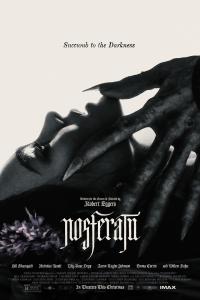Torrent details for "Mike Cooper - Trout Steel (1970) (remastered edition 2014)" Log in to bookmark
Controls:
Language:
 English
EnglishTotal Size:
426.34 MB
Info Hash:
a2290db447d196394323cbd8976b2bfe80002551
Added By:
Added:
11-12-2022 08:22
Views:
170
Health:

Seeds:
0
Leechers:
0
Completed:
-1

Genre: Folk-Rock, Country Blues
Media: CD
Disc (release) country of origin: USA
Year of publication: 2014 (1970)
Publisher (label): Paradise of Bachelors
Part Number: PoB-13
Country of performer (group): UK / Spain
Audio codec: FLAC (*.flac)
Rip Type: tracks+.cue
Audio bitrate: lossless
Duration: 00:50:10
Tracklist
01. That's How 04:22
02. Sitting Here Watching 03:13
03. Goodtimes 03:29
04. I've Got Mine 11:22
05. A Half Sunday Homage to a Whole Leonardo da Vinci [without words by Ric] 01:36
06. Don't Talk Too Fast 03:24
07. Trout Steel 02:25
08. In the Mourning 05:21
09. Hope You See 04:20
10. Pharaoh's March 07:16
11. Weeping Rose 03:22
With his sophomore effort for Dawn, everything came together for guitarist and songwriter Mike Cooper. Trout Steel established him as one of the pre-eminent players on the Brit folk and blues scenes. Given his organic approach to composing; his truly dazzling abilities with acoustic and slide guitars; and his predilection for just the right sidemen and arrangements, Cooper was among the most poised musicians of his generation, and Trout Steel proves the point time and again over its 11 tracks. The disc opens with the heartbreaking “That’s How,” with restrained string arrangements and a solo alto saxophone courtesy of Mike Osborne, who was as versed in Van Morrison’s brand of Celtic R&B as he was in Ornette Coleman’s new melodic ideas. From the lilting vocal and strummed guitars, the tune just breaks itself into pieces continually. The driving, pulsating, countryside blues of “Sitting Here Watching” is followed by guest Stefan Grossman accompanying Cooper’s own droning, open-string blues and Tampa Red-style flatpicking. The 11-and-a-half-minute “I’ve Got Mine” is a soundtrack without a film, and shows the first hints of where Cooper wanted to travel: into the roots of jazz. Half the cats on the record were in Mike Westbrook’s band at the time to garnish his deep British blues and historical sense of troubadour revelry. The title track is a hard country tune—in the old, weird, American sense of the word—with Cooper sliding like a demon to provide his melodic accompaniment. His vocals, wonderfully reedy and open, howl through the longing in the lyric and help to portray the notions of travel and stasis in the story. The record closes with two unanticipated tracks that lend immeasurably to the depth and dimension Cooper displayed at the time, and where he wanted to go as a musician: one was the completely improvisational number “Pharaoh’s March,” dedicated to Pharaoh Sanders, which showcased an entire saxophone section wailing it out with a restrained modal tension held by the guitar for over seven minutes. The other is “Weeping Rose,” a lilting love song rooted firmly in the soil of the British folk tradition of the vanquished rambler heading off to journey once more. After the complete strangeness of “Pharaoh’s March,” it was exactly what was needed to make the disc go out whispering and closed; rather than aching, raw, and uncertain. But even here, this song, with its complex rhythmic guitar pattern, offers in its lyrics the notion of restlessness: “Go ahead, I’ll meet you further / down the road.” Cooper capped off his greatest album with both a hint and a warning that he was not about to do the same thing twice. What a ride Trout Steel is: exhilarating and adventurous each time it is played.











































